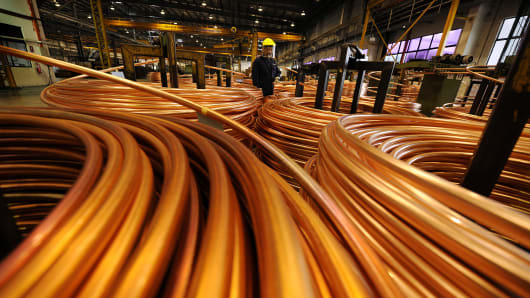According to the International Copper Study Group (ICSG) world refined copper production declined by about 1% in 1H19 with primary production (electrolytic and electrowinning) easing by 1.5% and secondary production (from scrap) inching 1% higher.
DRIVERS OF THE SLIDE
- Chile’s 38% decline in electrolytic refined output due to temporary smelter shutdowns whilst undergoing upgrades to comply with new environmental regulations. Total Chilean refined production (including Electrowinning) declined by 15%.
- India’s 33% slide in output on account of the shutdown of Vedanta’s Tuticorin smelter in April 2018.
- Zambia’s 28% refined output slow down as power supply interruptions, smelter outages and the tax environment weighed.
- General decreased output in Japan, Peru, the United States and a few European countries due to smelter maintenance shutdowns.
These risk drivers were nonetheless offset by growth in Chinese output and by increases in countries recovering from production constraints in 2018 such as Australia, Brazil, Iran and Poland.
GLOBAL COPPER STOCK BALANCES
The world refined copper balance adjusted for changes in Chinese bonded stocks indicated a market deficit of around 190,000 metric tons. Based on the average of estimates provided by independent consultants, China’s bonded stocks are thought to have increased by about 30,000 mt in 1H19 compared to the yearend 2018 level. Bonded stocks increased by around 5,000 mt in the same period of 2018.
August month-end copper stocks held at the major metal exchanges (LME, COMEX, SHFE) totalled 519,745mt, an increase of 169,249mt (+48%) from stocks held at the end of December 2018. Stocks were up at the LME (+154%) and SHFE (+21%) and down at COMEX (-60%).
COPPER PRICING ON THE LME
The average LME cash price for August 2019 was US$ 5,707.98/mt, down 3.9% from the July average of US$ 5,939.85/mt. Copper has had a turbulent run trading below $6,000/mt as it ‘bell weathers’ global economic pulse on the back of risks to growth across world economies. The US China trade war effects, geopolitical tension, Brexit and global politics continue to weigh on base metal markets.
BT

